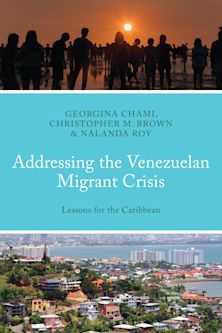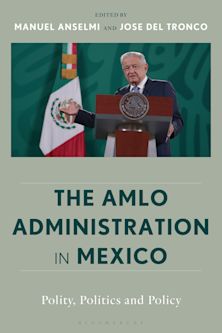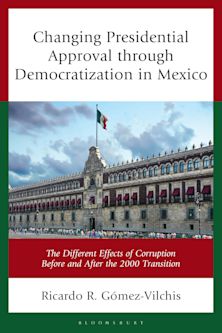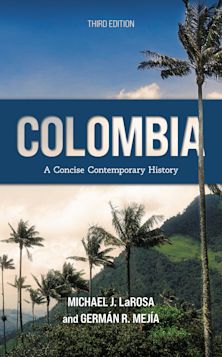- Home
- ACADEMIC
- Politics & International Relations
- Latin American Politics
- Women and Genocide in Guatemala
Women and Genocide in Guatemala
Justice and the Politics of Memorialization
Women and Genocide in Guatemala
Justice and the Politics of Memorialization
Payment for this pre-order will be taken when the item becomes available
- Delivery and returns info
-
Free US delivery on orders $35 or over
You must sign in to add this item to your wishlist. Please sign in or create an account
Description
After the conclusion of the 36-year long civil war in Guatemala, a Commission for Historical Clarification (CEH) was established in order to clarify human rights violations which took place. This organisation recommended a process of public memorialization of the victims in coordination with civil society organizations. Memorialization of this kind took both formal and informal froms: murals and graffiti as well as museums and public shrines. Based on extensive fieldwork this book deploys visual methodology and feminist theory in order to assess these efforts of memorialization in a gendered context. Multiple sites of memorialization are examined in relation to female representation as well as women's political activism in the process of constructing public memory and performance. This study offers a landmark contribution to memorialization studies by examining such practices in the Guatemalan context.
Table of Contents
List of Figures
Introduction
Chapter 1. Private Reflective Memorials
Chapter 2. Memorial Museums
Chapter 3. Memorial Murals
Chapter 4. Street Art and Graffiti
Chapter 5. Commemorative Memorialization
Conclusion
Bibliography
List of Abbreviations
Index
Product details

| Published | Apr 16 2026 |
|---|---|
| Format | Hardback |
| Edition | 1st |
| Extent | 176 |
| ISBN | 9781838602758 |
| Imprint | Bloomsbury Academic |
| Dimensions | 9 x 6 inches |
| Publisher | Bloomsbury Publishing |
About the contributors
Reviews
-
A powerful, well-researched book covering the many forms of memorialization employed by various entities to convey the loss during the long period of violence against the Indigenous Maya people –particularly Maya women. This exploration of the many sites offers a much-needed lens on an often overlooked and understudied genocide.
Donna Gosbee, Pensacola State College, USA
-
DiGeorgio-Lutz and Galvan-Mandujano's book embodies a feminist ethos, demonstrating care and attention to both the research process and women's experiences. This important book brings to light the experiences of women in 20th century genocidal violence in Guatemala, based on extensive fieldwork in memorial and commemoration as well as women's testimonies. Women and Genocide in Guatemala is an impactful addition to genocide, memory, and gender studies.
Melanie O'Brien, University of Western Australia, Australia


































